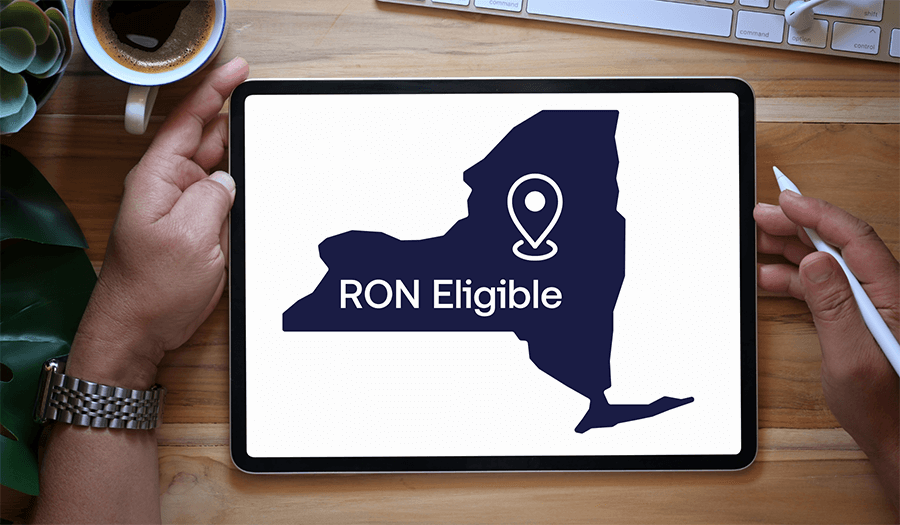Our government plays a significant role in homeownership, no matter how much we may think it’s a basic expression of capitalism and free markets. For starters, millions of mortgages each year receive funding thanks to the secondary market activities of Fannie Mae, Freddie Mac, and Ginnie Mae.
With this in mind, we were elated to bring on Angel Hernandez as Stavvy’s Head of Industry & Regulatory Affairs. With over six years at Ginnie Mae, immersed in eNotes and digital mortgage tools, he is an exceptional addition to our team, helping us navigate the governmental side of the lending equation.
This episode of Finside Chats explores Angel’s experiences at Ginnie Mae, Ginnie Mae’s APM 21-07, and the digitization of government-backed loans.
Listen Now: Ginnie Mae Sees Value in Digitizing Government-Backed Loans
Have a mission, not just a career
We kicked off our chat with Angel with a fairly obvious question, “what drove you to public service?” His answer was anything but.
While Angel was a summer associate in law school, his mother visited. After spending much of the day at his apartment, she decided to rewatch part of her son’s undergraduate commencement speech. When he returned from class, he was welcomed by a freeze-frame picture of himself on the TV. Intrigued, he took a seat on the couch, picked up the remote, and hit the Play button.
He sat there and listened to himself once again address his graduating class. The surreal experience served as a humble reminder and validated his chosen path.
“It is both my hope and prayer that we leave here, not with a career, but with a mission, not with a path for employment, but with a vocation to serve others.” The timing for this message could not have been better. “That just really resonated with me at that moment [in my life],” he recalls. Upon graduating, he knew he “wanted to do something that served others, and saw civil service as just a great avenue to fulfill that.”
Better for all involved
In November 2021, Stavvy was utilized in what we believe to be the first recordable and electronically-signed modification of a Ginnie Mae-pooled loan.
Although, whether the modification was first, fourth, or fiftieth has no real bearing on the accomplishment. Let’s take a deeper look at why this company milestone is so significant.
This fall, Ginnie Mae announced the acceptance of remote online notarization (RON) and eSign on Ginnie Mae-backed loan modifications. This change marks just another dramatic step toward digitizing the entire loan ecosystem—from loan origination to storing, sharing, servicing, and securitization—and we’re excited to be a part of it.
On the consumer side, the impact is equally as profound. Angel describes that most Ginnie Mae mortgage holders are “first-time homebuyers, low and moderate income [individuals], rural mortgage [applicants], veterans, folks who […] can benefit from the convenience of performing a notarization [digitally] from their home.” Knowing our technology can help individuals of all backgrounds stay in their homes motivates us to continue pushing for innovation in the industry.
Flexibility wins the race
The adoption of a fully digital mortgage is rising but is still far from the norm. Angel is encouraged by the progress but knows it’ll take much more than technological capabilities to move the needle significantly. Instead, it requires a partnership mentality.
“For it to really take off, those of us in this business need to be good partners with those that are originating and servicing,” he explains. “Those workflows, those processes are going to be unique to each company's own footprint and DNA.” Fintech solutions and providers must be flexible enough to accommodate the variety of models in use across the industry.
Angel may be new to our team but is already leaving his mark. It has been so valuable for our Stavviators to learn from his experience and expertise, and we hope you can say the same after listening to this episode. We look forward to his contributions to the business and industry in the months and years ahead.
“So, apart from all the consumer-facing benefits of this policy, I think when we step back and look at it, the entire context of what it means for home lending and securitization in general, this policy is sort of the first part where we begin to look at existing paper assets and begin to see how we can transition those into the digital ecosystem. The industry has struggled with this for quite some time. This is not the end of it, but it's definitely a great step [forward]. And, this is going to unlock some opportunity for increasing efficiencies and having services that best serve people.”
-Angel Hernandez, Head of Industry & Regulatory Affairs




